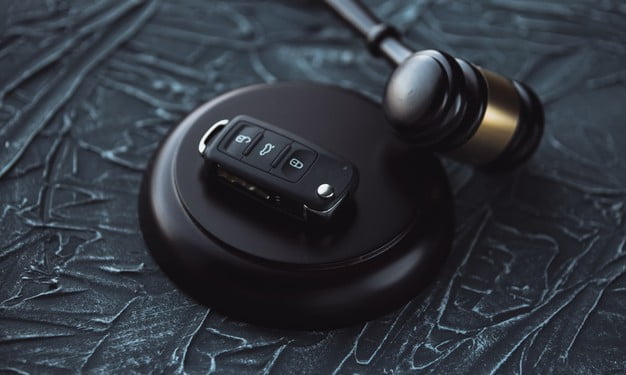How Is Fault Determined In A Car Accident?
by Abdul Aziz Mondal Legal Published on: 07 April 2021 Last Updated on: 27 December 2024

Determining the one at fault during a car accident is necessary, especially when you’re to file a personal injury lawsuit or an insurance claim. Insurance companies tend to determine the faulty heeding the state laws and details of the accident.
The party who is deemed responsible for the casualty is held liable for the other party’s damages. More often than not, there is more than one party at fault.
Herein different people involved in the accident need to make up for the reimbursement.
Read on this guide by Naqvi accident Injury Law to figure out how the fault is determined in a car accident.
The procedure of determining fault:
When an insurance claim is filed after an accident, the first thing that the adjuster looks for is the cause of the casualty, i.e., how the accident occurred.
Herein the insurance company may assess evidence and testimonies out of the place of the incident. This is to evaluate whether the insured was responsible for the accident or was the other driver at fault.
Concerning this, here are some of the common aspects that are contemplated in deducing the cause:
Rear-end Collisions:
A general rule says that if a car gets hit from behind, it is perhaps the rear driver’s fault. This is because traffic laws formulate the practice of maintaining a certain amount of distance between two vehicles. So, even if the driver ahead brakes suddenly, the other driver was likely too close to the car if he/she hit it on the go.
Police reports:
A police report is one of the main sources of information that can be acquired from the law enforcement officer who was called upon the scene. A complete report might include crucial details about the evidence or which party the officer believes to be responsible for the accident.
Personal injury lawyers and insurance adjusters emphasize police reports as a critical piece of information in determining the party at fault.
Hence, in an automotive accident, one must review the relevant police reports, checking for the jotted details’ accuracy.
Traffic Laws:
The state traffic rules can also assist in getting at the wrongdoer. Laws can help learn the information about the times when the driver should have slowed down his speed, overlooking instructions following the road or other relevant details favoring the victim’s case.
Some other ways to determine the fault:
Besides the facets mentioned above, carefully assessing other factors can also determine which driver’s carelessness resulted in the accident, such as:
- Debris at the place of the incident can contain important clues. While at it, skid marks are also a critical source of information.
- Testimonies of the passengers, drivers, or any passerby who witnessed the accident can offer significant observations about what happened.
- Cell phone records can brief whether the driver was on a call or texting someone when the accident took place—negligent, making him liable for the collision.
Consult an expert:
Each car accident sums up with different credentials and challenges, which is why it’s necessary to seek professional help.
Hence, it is best advised to work with an experienced attorney who can guide you through your case proceedings and get you the reimbursement you are entitled to.
Car accidents can be anything from a minor one to being full-on wreckage. Not only is your car damaged but you and your passengers could be heavily injured, sometimes permanently. Determining who is at fault for the accident could be quite confusing and controversial. Car accidents are determined depending on the state you live in and whether it can be considered a no-fault or at-fault vehicle accident.
Defining No-Fault Vehicle Accident:
This kind of accident happens in a state which comes with no-fault insurance law. In many states, having personal injury protection or PIP is crucial. This will help you pay for any injury related to a car accident, no matter who was at fault.
What To Know About At-Fault Car Accidents?
States which do not cover or offer PIP coverage have at-fault accidents. This kind of coverage ensures the driver who is at fault and their insurance compensate for the damages and injuries caused to you. When it comes to determining who was at fault for the accident, you would want to contact the police and get the insurance and a lawyer involved.
Extensive Idea On How Fault Is Determined By the Police:
Car accidents should be reported always when there has been extensive injury or even death or there has been property damage. While it is not compulsory to report minor accidents, it is always advisable that you lodge an official complaint.
Any police officer will first analyze the whole accident site and ask both the drivers and listen to their interpretation. Officials will also inspect the vehicles and the damage caused, and look for any witnesses that could help shed some light.
The police report will help you as well as your lawyer create a strong background for the case, especially if it is in your favor. They will have their own professional opinion on who was at fault. Police reports are used to create a defense against any lawsuits or put one together.
Insurance Companies And How They Determine Who Is At Fault:
The insurance company will determine who is at fault depending on the state law coverage- whether it is a no-fault one or an insurance liability one. In no-fault states, often it is not the responsibility of the insurance agent to decipher who is at fault. The driver’s insurance company will take the necessary steps.
Insurance companies have to figure out who is accountable to cover charges which go beyond the PIP. Insurance companies appoint adjusters who will inspect the case thoroughly, collect key witnesses and points to determine who is at fault.
You should know that most insurance companies are not too forthright when it comes to handling over compensation claims. In fact, their businesses’ success depends on how low the claim amount can get. This is something that is common with many car accidents in Atlanta. Experts suggest that if you want the maximum claims and compensation disbursal, you need to work with an expert personal injury attorney that can help you in this regard.
How Will the Court Determine Who Is At Fault?
When the injured driver lodges a report against the other driver for property damage and negligence, the court will decide who is at fault. A negligent person is one who has failed at following the preventive measures, therefore, leading to an accident.
The court will hear both the drivers and their lawyer, check any footage or evidence, investigate the official and also talk to medical experts.
When it comes to determining who is at fault, the whole process is a complex one. It can become even more taxing when the insurance companies are not helpful. Gathering enough evidence and getting help from an experienced lawyer helps you get the compensation you deserve.



































































































